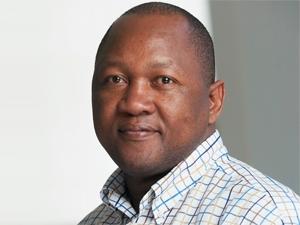
For SA to have reasonable WiFi coverage, the country needs at least five million new hotspots.
This was revealed by Andile Ngcaba, chairman of WiFi Forum SA, speaking yesterday during the initiative's inaugural conference in Johannesburg.
WiFi Forum SA, established in November 2013, is a voluntary forum of operators, service providers, technology providers and associated parties with a shared vision of accelerating the adoption of high-speed, reliable and cost-effective broadband services in the country, and a shared focus on WiFi technologies as a means of doing so.
"The only way we can do this is getting people to create hotspots around the country with carrier-grade WiFi, like the guy who has a shop on the corner."
Ngcaba noted for the widespread use of WiFi in SA, the country should target underserviced areas where Internet connectivity is low. For the WiFi sector to thrive, he also called for an effective self-regulatory framework for SA.
"It is important for the industry to ensure there is harmony in the way we deploy WiFi infrastructure. We must also ensure we adhere to international standards and provide equipment that meets global standards."
He also urged the country to eye average WiFi speeds of 1Gbps, saying currently most operators make use of the 802.11n wireless networking standard for connectivity in SA.
An 802.11n network can achieve 72Mbps on a single 20MHz channel with one antenna. Its speed may go up to 150Mbps, as long as there aren't other Bluetooth, microwave or WiFi emissions in the neighbourhood, by using two 20MHz channels in 40MHz mode. If more antennas are used, then it can go up to 288Mbps in 20MHz mode with four antennas, or 600Mbps in 40MHz mode with four antennas.
However, Ngcaba noted to achieve 1Gbps throughput in the next five years, operators must look to upgrade to 802.11ac, a wireless networking standard which provides faster speeds.
Connecting SA
Also speaking at the event was Siyabonga Cwele, minister of telecommunications and postal services, who noted WiFi rollout in SA would see the country achieve the goals set in its SA Connect initiative and boost the economy.
SA Connect is government's ambitious plan to provide connectivity to all by 2020.
He revealed phase one of the SA Connect project will commence next month with the target of connecting 580 clinics, 4 444 schools, 182 police stations and 572 other government offices to the Internet by June.
He noted improved access to the Internet can help in the modernisation of government's service delivery model, spur economic growth and bridge the digital divide in SA.
"Our inability to close the digital divide will cause more harm than apartheid," the minister said.
SA, as a whole, needs to work actively to ensure affordable and reliable access to the Internet is not an exclusive privilege, but a reality for all South Africans, he urged.
"Improved access to the Internet will modernise and positively impact the transformation of our education system to produce better results; advance the way we do business and boost economic growth, as we modernise the delivery of government services and how we interact with government and each other as citizens, as we walk our long shared journey to an inclusive information society envisaged by the National Development Policy."
Universal access
Currently, he noted, SA has a 49% Internet penetration rate and only 17% high-speed broadband penetration. "There is a lot of work before us to ensure that by 2030, we have achieved a 100% penetration rate."
According to Cwele, WiFi technology has the potential to play an essential role in achieving universal access to ICT for the citizens in rural areas and territories where telephone or cable infrastructure is not deployed.
"Low-cost WiFi installations could mean the difference between no ICT access of any kind and an affordable service. We are working tirelessly with the industry to ensure the cost to communicate is lower and, thus, enable more people to access a connection to the Internet."
"I would like that when we meet in future, we can have more small-scale providers and entrepreneurs of WiFi services from the previously disadvantaged communities. Our collective commitment to a digitally inclusive information society calls for public-private partnerships which can best be facilitated by industry bodies like the WiFi Forum of South Africa."
Meanwhile, Zolani Matebese, head of broadband at the City of Johannesburg, said the city is looking to roll out 1 000 WiFi hotspots by 2016.
Share